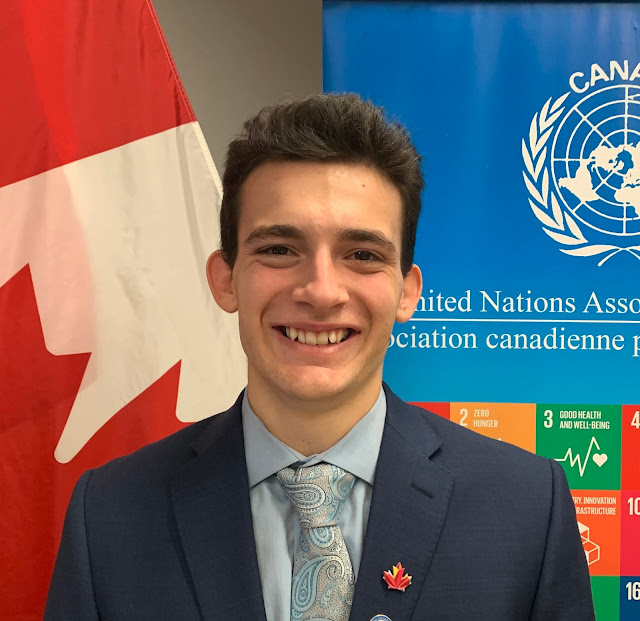Lateisha Ugwuegbula's Journey at UNESCO Thailand
Sustainable tourism: Lateisha Ugwuegbula's experience in UNESCO Thailand
I am Teisha Ugwuegbula and I’m a Junior Professional Consultant with UNESCO Bangkok in the Inclusive Quality Education Section. Living and working in Thailand has been amazing. Not only has my role at UNESCO Bangkok been a fulfilling and rewarding experience thus far, but I have the privilege of living close to some of the most beautiful beaches in the world! Part of the experience of being a Junior Professional Consultant is soaking in, learning from, and contributing to the country you call home for six months. While I am living and working here, occasionally I get to be a tourist. When I do get the chance to be a tourist in this beautiful country, I try to do it as sustainable and responsible as possible.
Living
and travelling abroad, especially in developing countries or emerging
economies, requires thought and consideration. While you’re excited to get away and most likely on vacation from your everyday life, you’re entering other people’s everyday lives, and it’s important to think about the dynamics of that interaction and self-reflective questions, such as: Are you welcome in the country? Are
you affecting the country positively or negatively? Are you respecting the
local culture? Do the citizens of that country you’re visiting have the financial means to travel as freely as
you do? Why or why not?
People
come from all over the world to travel in Thailand and Southeast Asia; tourism
accounts for a large portion of the Thai economy. While tourism can bring great
economic benefits to an emerging economy, it can also exacerbate challenges and
create new ones. So, what do you do? How do you enjoy being a tourist and
explore the beauty of a country while minimizing the potentially negative
effects your tourism might have?
Listed below are a few issues to be mindful of as a tourist:
Human
Tourism & Trafficking
Bangkok
is one of the sex tourism capitals of the world. While many international
tourists come specifically for this industry, many don’t, but may unknowingly end
up supporting it by attending one of the numerous sex themed shows that are
advertised in all of the popular tourist areas. Groups of tourists might think
this is an exciting night out, and all in good fun - many of these shows are
advertised as 'must see' attractions in the city, however the illegal and
unregulated nature of the industry means that by attending these shows you are
most likely participating in human trafficking. Many women come to the city from
rural areas in the region, and with low levels of education and lack of job
opportunities, they wind up in an industry that is booming largely because of
international tourists. Coming to a country and engaging in these activities
without thinking about the larger implications further exacerbates
exploitation, poverty, and helps fuel the human trafficking industry.
Animal
Tourism
Many
tourists in the region come to Thailand to participate in one of the many
elephant sanctuaries that exist. It’s important to do your research on
companies offering this type of experience as it’s often not a sanctuary at
all. Many tourists don’t realize that these animals are abused, mistreated
and kept in inhumane living conditions so that they are docile enough that we
can ride and touch them. The demand from Western tourists to participate in
elephant sanctuaries produces large profits and drives the industry. There are
some rehabilitation centers for mistreated elephants and other exotic animals that
exist. Therefore you should do your research if this is something that you’re interested in!
Avoid
Producing Plastic Waste
This
one is hard, especially in Thailand. Everything is wrapped and packaged in
plastic and it is extremely hard to avoid, but you should try! Over-tourism is a contributing factor to large issues in Southeast Asia, as is plastic waste. Try investing in a reusable water bottle and straw, and turn
down single-use plastics whenever you can.
Spending
Money Responsibly
I
think one of the best ways to travel responsibly is to put thought into how you
spend your money. Tourism is a large part of the Thai economy and spending
money generates income for individuals and can create numerous benefits for communities.
However, it’s important to try to spend responsibly. Are you spending money on
souvenirs made from illegal ivory? Are you bargaining a little too hard for
something you can easily afford? Did you pay a fair price for the hand
embroidered jacket made by an Indigenous woman in Northern Thailand? It is important to think about the effects of your spending, especially
if you’re travelling in a developing country, and coming from a place of
privilege yourself.
There
are tons of ways to engage in sustainable tourism, but these are a few relevant
to Thailand!
Working
on Sustainable Development Goal 4, education at UNESCO Bangkok has highlighted the relevance of
life-long learning. Use your opportunities abroad as a chance to learn about
the history and culture of the communities you are living and travelling in. The
International Development and Diplomacy Internship Program creates informed
global citizens, and part of that responsibility includes being an ethical and
sustainable tourist.




Comments
Post a Comment